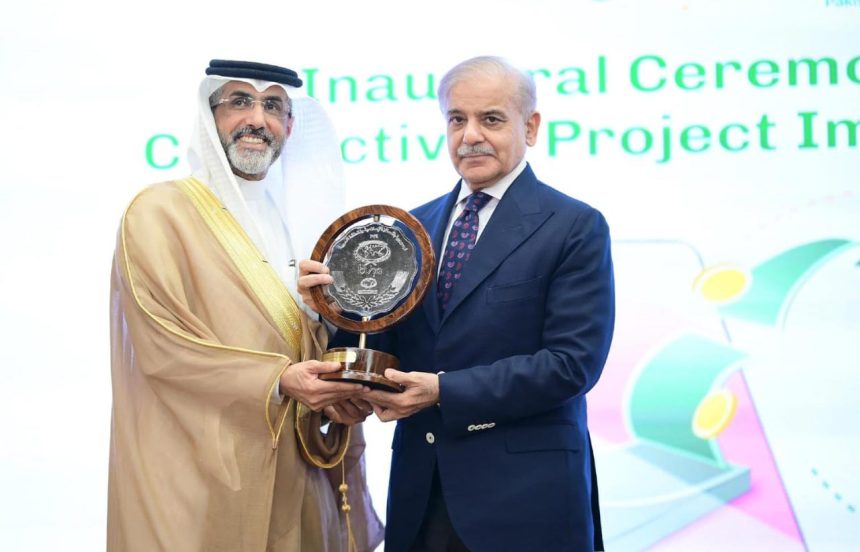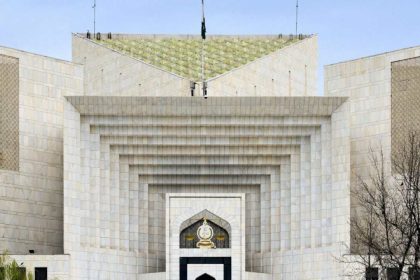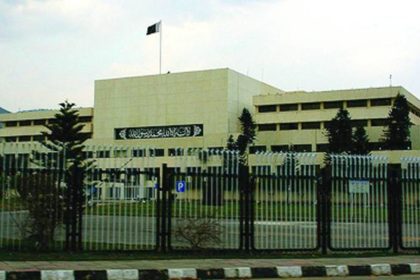After a wait of almost 10 months, Pakistan has finally implemented the linking of its Raast instant payment system with Buna, which is a cross-border payment platform operated by the Arab Monetary Fund (AMF).
Prime Minister Shehbaz Sharif announced the new transaction system’s launch during a ceremony in Islamabad on Thursday, with authorities calling it “a step forward in modernizing Pakistan’s financial infrastructure”.
According to reports, the groundwork for this collaboration was laid in November with the signing of a memorandum of understanding (MoU) between the State Bank of Pakistan (SBP) and the AMF in Abu Dhabi.
The agreement allowed the two sides set up a framework for cooperation between Raast and Buna. Moreover, this linkage is supported by all central banks of the region. The government believes that this move will transform how Pakistanis in the Gulf region send remittances.
Now, Pakistani rupee (PKR) has been included in the Buna system as a “settlement currency”. The Prime Minister’s Office (PMO) said the collaboration was part of a broader initiative to create a fast, effective, and low-cost method for overseas Pakistanis, especially those in the Gulf region, to send money home in real time with more security.
But why is this collaboration being hyped so much, especially when many formal and informal channels are serving the same purpose? It needs to be understand that remittances are a lifeline for millions of families in Pakistan, and are a huge source of foreign exchange that helps stabilize the balance of payments. As Saudi Arabia and the United Arab Emirates (UAE) are top destinations for Pakistani laborers, the share of remittances coming from this region is the highest.
However, remitters have often complained about inefficiencies, high costs, and delays in payments, especially when using informal channels. This is where the Raast-Buna system steps in, as it has been designed to tackle all these issues. It will provide a more reliable and cost-effective channel for money transfers.
Another thing this system will promote is financial inclusion, which means more and more people being brought into the formal financial system, as explained by AMF Board Director General and Chairman Fahad M Alturki. This will allow people even in the remotest of areas to have access to safe and reliable financial services.
In the long run, the Pakistani rupee’s global relevance might increase due to its integration into the Buna system, as its use in international transactions will increase. This would subsequently have a positive impact on Pakistan’s trade and investment relations with Arab countries and beyond.
Why adopt?
Overseas Pakistanis, especially the ones living in Arab countries, often use informal channels like hundi and hawala to send remittances for various reasons ranging from privacy/anonymity to low ‘service charges’ despite the risks involved. However, this new system is likely to discourage those informal channels, as it offers not just ease and security but also competitive rates.
As explained by PM Shahbaz and his team at the launch, the Raast-Buna system has been designed to be cost-effective, which means it is cheaper to send money through this channel as compared to hundi and hawala. This alone makes it an appealing mode of transaction, especially for people who want to save money when sending remittances.
The second most attractive feature is the speed, as money transfers through this system will happen in real-time, almost instantly, something that lacks in hundi/hawala. Moreover, unlike the risky informal channels, funds are protected by formal financial institutions in Raast-Buna system, which minimizes the risk of loss or fraud.
Since this new system is fully regulated and transparent, the remitter or the receiver would not have to worry about legal issues or complications that can arise from using informal channels like hundi and hawala.
Drawbacks
However, the success of this initiative will depends on its adoption by both the remitters and the receivers. Unfortunately, there are several reasons that would keep users away from this new system. A lot of overseas Pakistanis might see “transparency and traceability” in transactions as a disadvantage, especially those who prefer the anonymity offered by informal channels.
On the receivers’ end, a major issue would be accessibility, especially for people living in remote regions where banking infrastructure is limited, if not absent. Even with these barriers covered, there is going to be a learning curve in adopting the new system, considering the low literacy rate. They might find it hectic or challenging to first open a bank account, understand the processes involved in the new system and then navigate through digital platforms. Moreover, many people in Pakistan have refused to set up bank accounts for ‘religious’ reasons, especially because of the term “interest” involved. Access to smartphones and the internet, along with technical issues, outages, or cyber threats that could disrupt the service, is also an issue, especially in remote regions, which might discourage adoption of Raast-Buna system or make it less reliable in certain situations.
Money laundering
Since the Raast-Buna system offers increased transparency, it will be very difficult to use it for money laundering or other illegal activities. This means that any suspicious transactions will be easily flagged and investigated. Another good thing about formal systems like Raast-Buna is that they often have built-in limits on transaction sizes, frequency, patterns, and other controls. If these controls have been included in this system, it will be next to impossible for users to launder money. As announced by PM Shahbaz himself, this project would put the country on the “right side” of the Financial Action Task Force (FATF).
However, despite these safeguards, it would be wrong to assume that the system is completely foolproof. Criminals across the world have been using a technique known as smurfing, which involves breaking large sums into smaller and less notable amounts and then making transactions using different accounts. Another thing which Pakistan has witnessed in the past is the use of legitimate-looking front companies to move huge amounts under the guise of normal business transactions. Since this system had not been designed to send only remittances, putting an upper limit on transaction size would really be helpful to discourage misuse of Raast-Buna. Theoretically, misusing the system to carry out illicit transactions is possible, but thanks to the monitoring and controls put in place, it would be extremely difficult.












